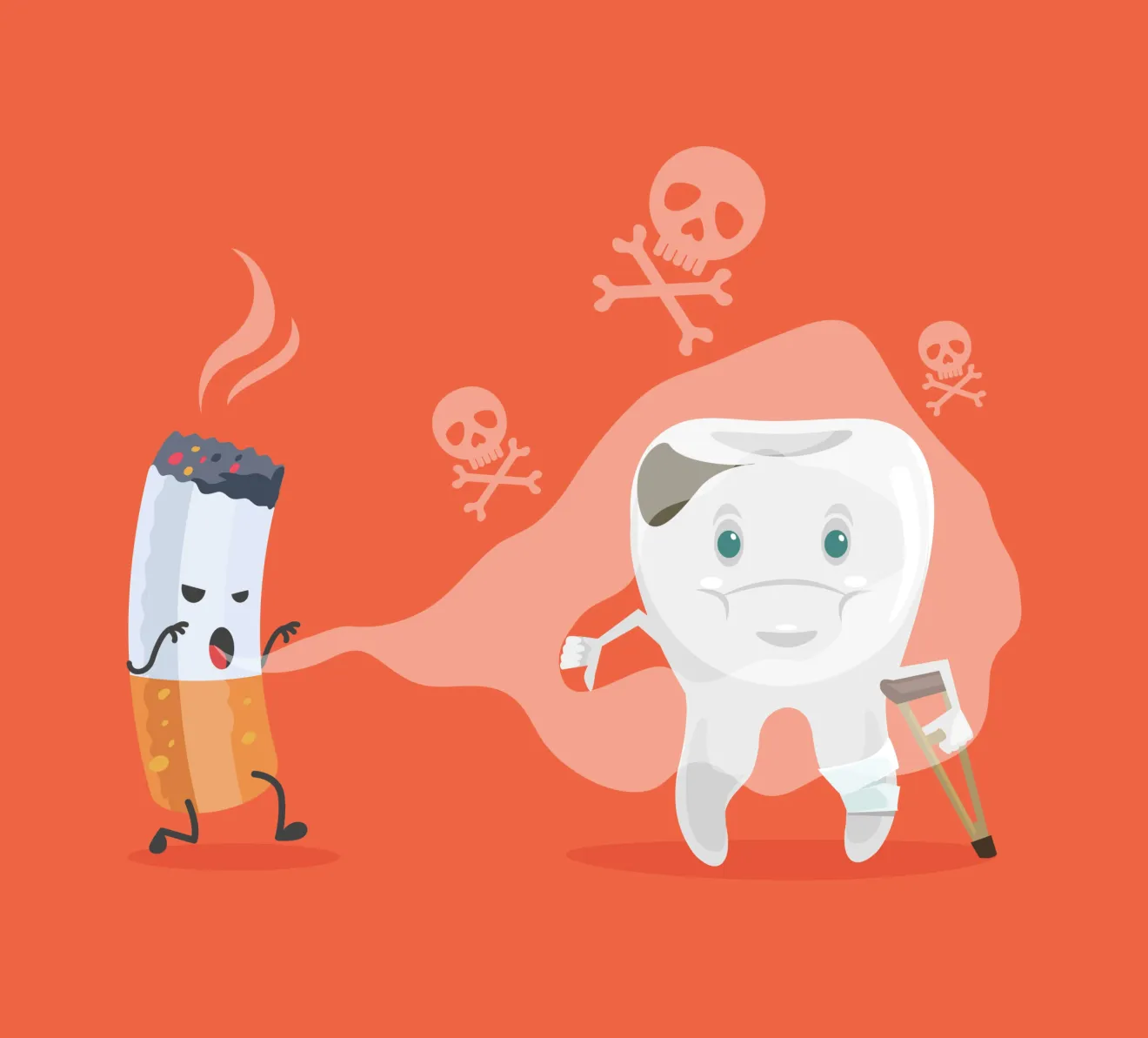Tobacco use, in various forms, poses severe threats to oral health, impacting tissues in the mouth and increasing the risk of various oral conditions. Understanding the detrimental effects of tobacco and raising awareness about its impact on oral health is crucial for individuals aiming to safeguard their smiles and overall well-being.
Impact of Tobacco on Oral Health:
- Gum Disease: Tobacco use significantly increases the risk of gum disease, causing gums to recede, become inflamed, and bleed easily.
- Tooth Discoloration: Tar and nicotine present in tobacco can stain teeth, leading to unsightly discoloration.
- Bad Breath: Tobacco use contributes to persistent bad breath or halitosis, which can be challenging to eliminate.
- Reduced Healing: Smokers generally experience slower healing after dental procedures, oral surgeries, or injuries.
- Increased Risk of Oral Cancer: Tobacco use, especially in smoked forms, significantly elevates the risk of oral cancer, affecting the lips, tongue, cheeks, and throat.
Forms of Tobacco and Their Effects:
- Cigarettes: Smoking cigarettes introduces harmful chemicals into the mouth, increasing the risk of gum disease, tooth decay, and oral cancer.
- Smokeless Tobacco: Chewing tobacco or using snuff can cause gum irritation, tooth abrasion, and increase the risk of oral cancer.
- Cigars and Pipes: Even occasional cigar or pipe smoking heightens the risk of oral health issues like gum disease and tooth loss.
Quitting Tobacco and Oral Health Improvement:
- Enhanced Gum Health: Quitting tobacco can lead to improved gum health, reduced inflammation, and decreased bleeding.
- Whiter Teeth: Stopping tobacco use can prevent further staining, allowing teeth to regain their natural color over time.
- Reduced Risk of Oral Cancer: Ceasing tobacco use significantly lowers the risk of developing oral cancer and other associated health issues.
Supporting Oral Health Without Tobacco:
- Professional Assistance: Seeking guidance and support from White Flint Dental Associates or healthcare professionals when quitting can improve the chances of success.
- Oral Hygiene: Maintaining impeccable oral hygiene practices, including regular brushing, flossing, and professional cleanings, is vital.
- Healthy Habits: Adopting a balanced diet, staying hydrated, and avoiding tobacco substitutes support overall oral health.
Conclusion:
Tobacco use poses multifaceted threats to oral health, encompassing gum disease, tooth discoloration, bad breath, and a heightened risk of oral cancer. Understanding these risks and taking proactive steps to quit tobacco use or avoid it entirely is crucial in preserving a healthy smile and overall well-being. At White Flint Dental Associates, we stand ready to support your journey toward improved oral health and a tobacco-free lifestyle.
